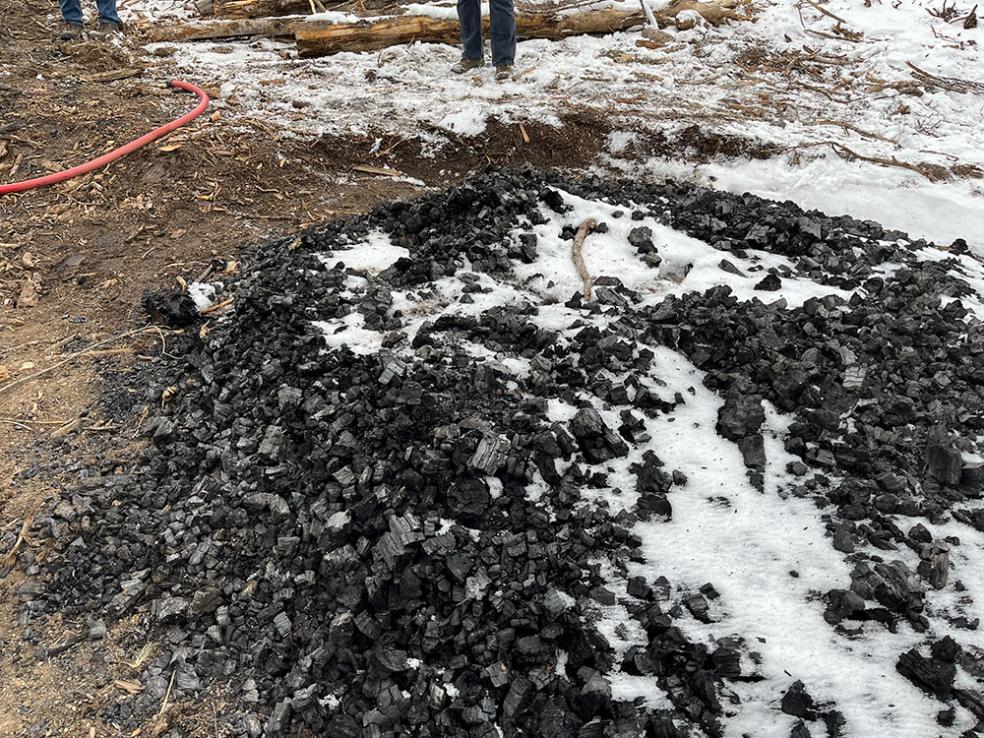
Biochar is one of many possible solutions to help remove carbon dioxide from the atmosphere. It’s a kind of charcoal that results from heating dry plant-based materials at high temperatures without oxygen. The CO2 in the charcoal then stays in the soil for hundreds of years, rather than in the atmosphere.
Partnering with the USDA Forest Service Rocky Mountain Research Station and Understory Initiative, Cal Poly Humboldt engineering professor Christa Meingast looks to extend biochar applications to roadside soil remediation and wastewater treatment processes.
Researchers will conduct tests in the Six Rivers National Forest, treating each test site with a unique biochar mix that’s seeded with a native, pollinator-friendly plant mix to compare growth between test sites.
They’ll measure changes in vegetation productivity, diversity, native species composition, soil carbon, nutrients, metals, bulk density, seasonal water availability, and microbial community composition over a five-year period.
The data gathered from this study will inform future soil rehabilitation efforts with pollinators in mind.
The researchers will also study the capacity of biochar to reduce common wastewater contaminants such as heavy metals, organic pollutants, and nutrients. This will allow them to design biochar filtration systems for wastewater treatment.